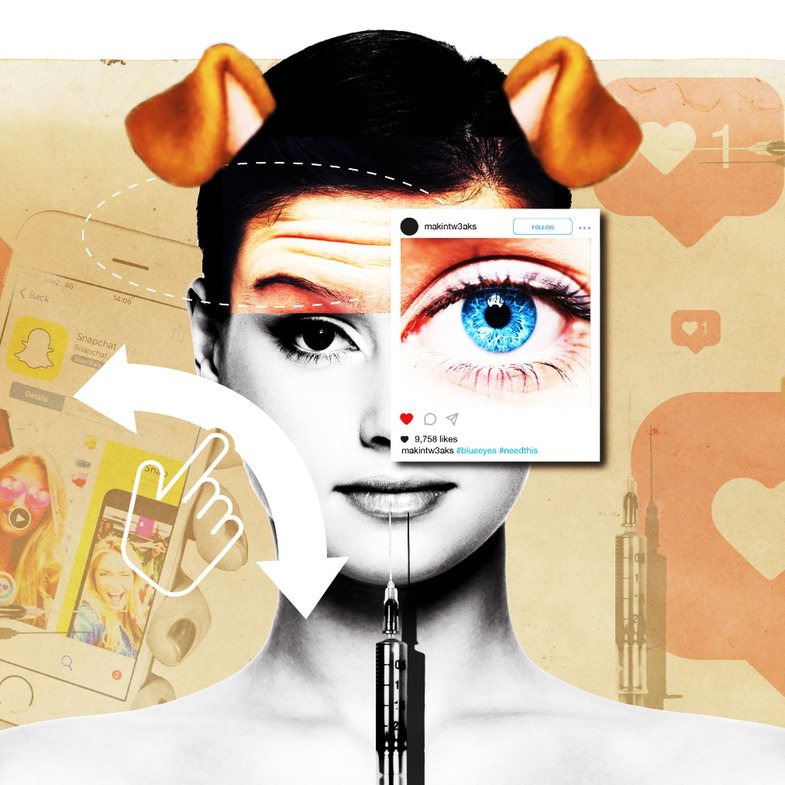
Studies are increasingly showing a link between filter-edited selfies and increased body dissatisfaction. A new term is being coined for this phenomenon: Snapchat Dysmorphia.
Snapchat dysmorphia, to put it simply, happens when you compare photos with filters to the actual look. When you fixate on your perceived flaws, feelings of dissatisfaction can make you want to change your features to fit those altered images.
Snapchat dysmorphia is not an official mental health diagnosis, so experts have not established a standard definition, symptoms, and reasons why it occurs. The term itself came into use after plastic surgeons began reporting that a number of clients wanted cosmetic procedures to match the filter-altered version of their photos.
Snapchat dysmorphia generally means that you don't feel good about taking pictures and try to transform them too much. Here's how to tell if you have this condition:
- You obsess over how you look in photos, to the point where you don't value your real appearance anymore.
- You see "flaws" that no one else sees.
- You spend a lot of time taking and retaking photos and then editing them to make them look like the image you have in your head.
- Compare yourself to others and feel bad.
- You often find yourself spending more time than planned taking selfies or editing them.
- You spend a lot of time finding ways to change your look to match your selfies.
- Photo editing can cause anxiety, worry and unwanted emotions.
- No matter how often you decide to stop taking and editing photos, you find it hard to quit.
Contacting a therapist is always a good next step when:
- Appearance concerns affect daily situations and activities.
- The time you spend on selfies affects your responsibilities and relationships.
- You feel guilty and ashamed about the time you spend taking pictures.





